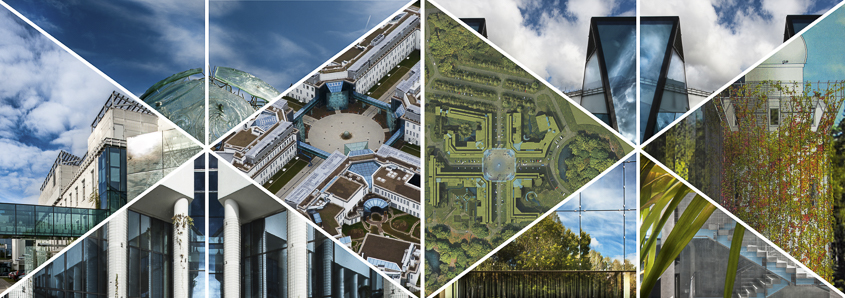
The University of Bialystok is one of the largest and most dynamic universities in Northeast Poland.
The University consists of 9 faculties: Biology, Chemistry, Economics and Finance, Philology, Physics, History and International Relations, Mathematics, Education, Law, 5 institutes: Philosophy, Informatics, Sociology, Culture Studies, Management, and the Branch of University in Vilnius. More than 9,000 students are currently educated at the University - for Bachelor and Master degrees, postgraduate studies and doctoral schools.
The new campus was the largest investment in the history of the university. Thanks to the new educational corps, interest in the university and such specialties as biology, chemistry, physics, mathematics increased significantly. The facility has about 840 premises, including audiences, staff offices, laboratories. A library, planetarium and astronomical observatory are now under construction on campus.
Majors in the field of human sciences are based on the academic tradition; however, curricula also incorporate elements of knowledge of modern technologies used for communication and the language of the new media, as well those referring to the ongoing political and social transformations.
Philologists get involved in cultural and educational activities, For many years they have been organising scientific sessions in Vilnius, Kiev, Odessa, cooperating with the Podlasie Library, the Polish Radio Bialystok and the Bialystok branch of the Polish Television (TVP).
Historians conduct scientific projects focused on exploring the Eastern borderland and its civilisation heritage. Works concerning the contemporary society and economics are particularly praised.
Law, Pedagogy, Sociology and Economics are ones of the most popular directions at the University of Bialystok. Such interest among candidates proves not only a high level of education but also the right adjustment of the educational offer to the current market needs.
The University can also boast about its didactic and research facilities. The buildings where law, economics and sociology students attend lectures and classes are centrally situated and co-form Bialystok’s historic centre. The didactic and festival hall, launched in 2012, is a place where students may express their creative potential and the staff can organise large-scale conferences, symposiums and scientific events.
The university gives many opportunities for development. As part of the Erasmus + exchange program, students can study at other EU universities, and as part of the MOST program at other universities in Poland.
Students actively participate in the work of organizations and associations such as the Independent Students' Association (NZS), the European Law Students' Association (ELSA), AISEC, they comprise the UwB Students’ Parliament.




